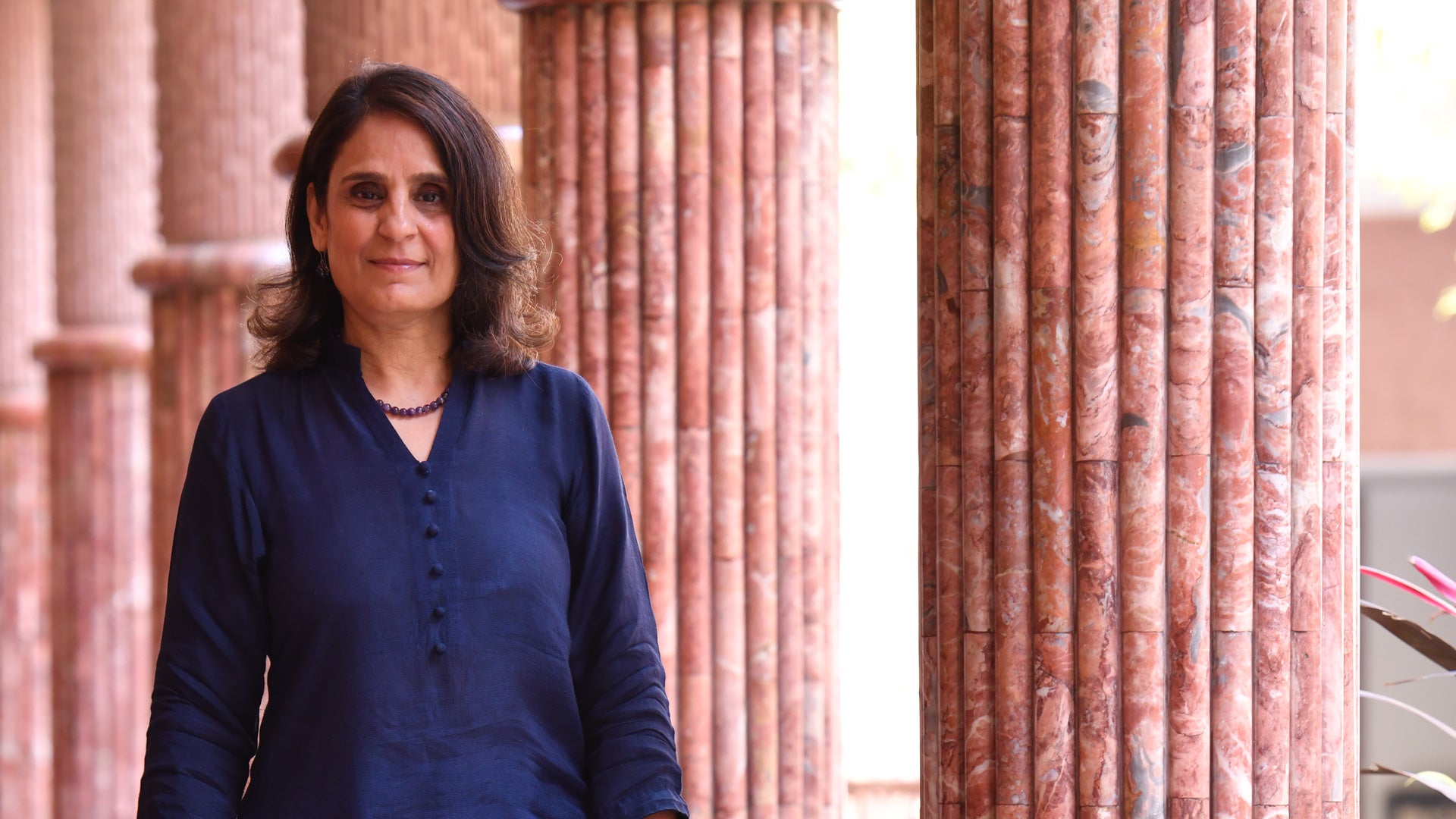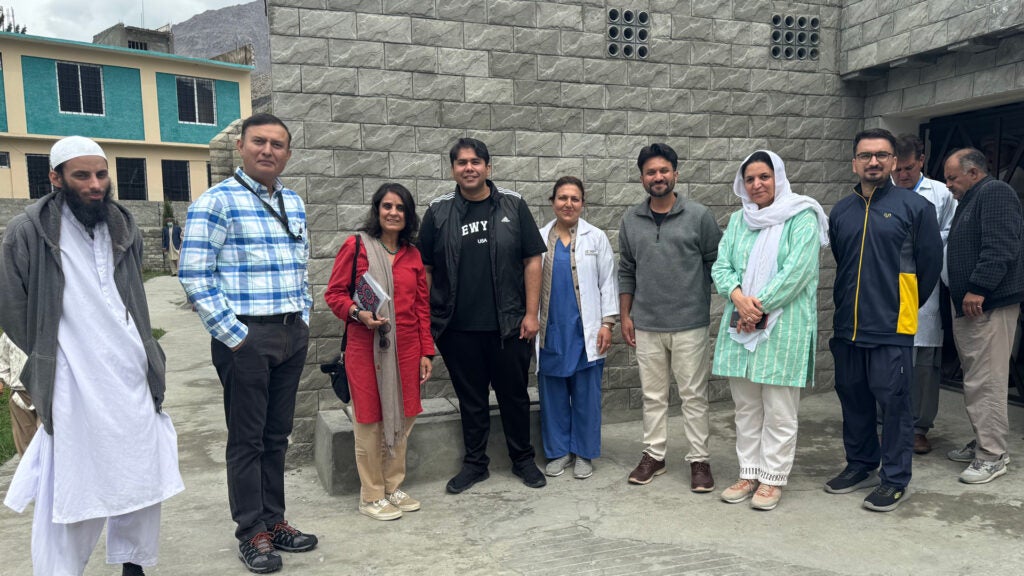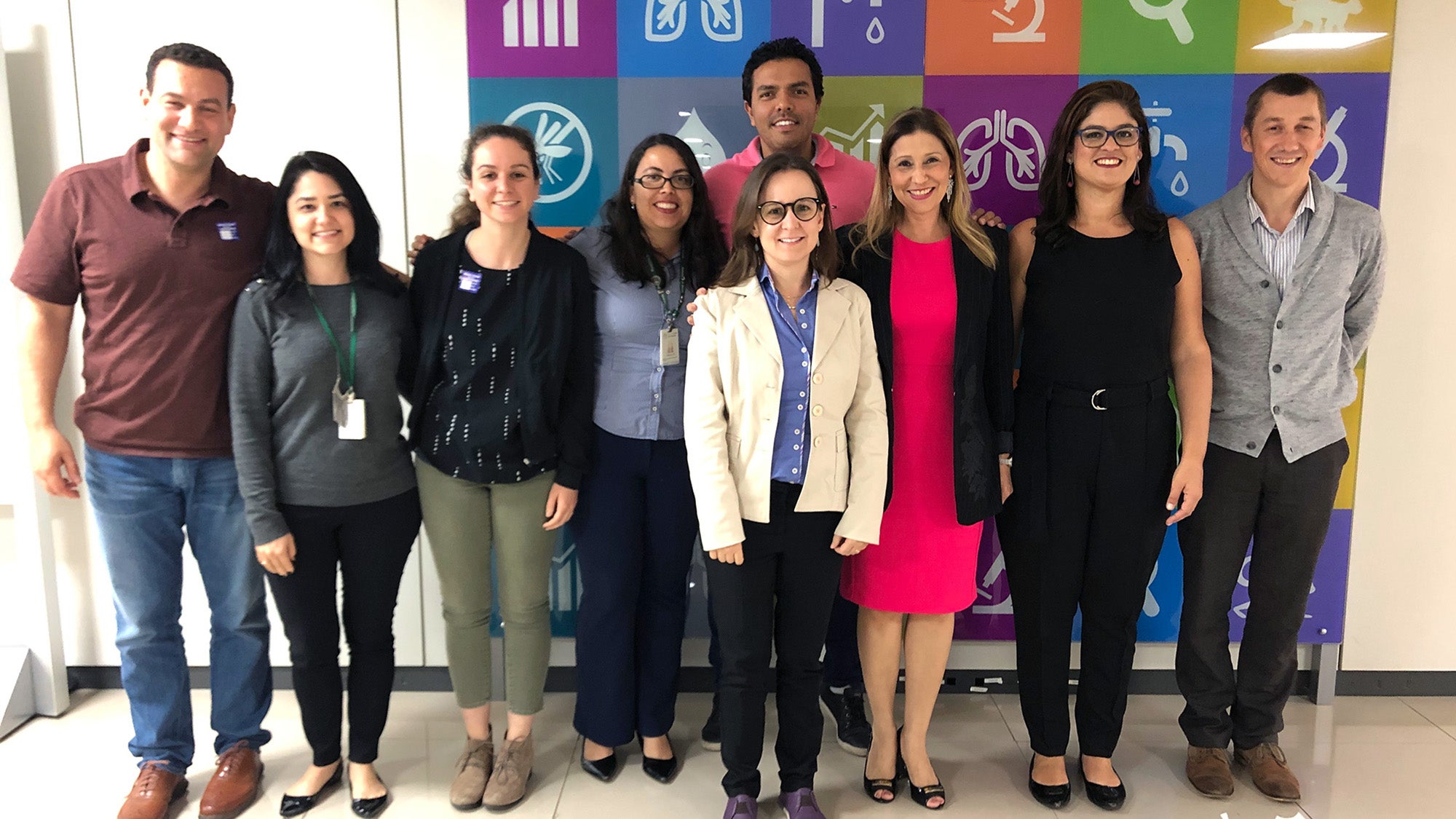Leveraging my Harvard Chan education to transform nursing in Pakistan

My Harvard Chan education transformed me and jumpstarted a diverse career that took me around the world, from managing a clinic for immigrant children in New York to leading the March of Dimes’ initiatives to improve maternal and neonatal health in low- and middle- income countries—and most recently, back to my undergraduate alma mater, Aga Khan University (AKU) in Pakistan, where I took on a position as dean of its School of Nursing and Midwifery last summer.
I came to Harvard T.H. Chan School of Public Health with a clear mission: to become a leader in health care. The MPH I earned at the School taught me to think big—it broadened my perspective and gave me tools to think at a national and global scale.
At AKU, I am applying the lessons I learned in my MPH program at Harvard Chan School to rethink nursing education as a vehicle for improving health equity, the quality of nursing and midwifery education, and population health across Pakistan.
During this unsettled Commencement season, when new graduates and alumni in many parts of the world face an uncertain job market and unprecedented distrust of public health, I hope that my experience might be instructive. I found that my education prepared me to take on far more roles than I had ever contemplated. And I learned that staying open to new opportunities could lead to a varied and deeply meaningful and rewarding career.
A new way of seeing the world
At Harvard, I encountered the foundational frameworks that shape population health—concepts like distributive justice, the maximin principle, egalitarianism, and utilitarianism. I began to examine the deep disparities that exist both within and between nations. One class exercise that has stayed with me was the “Lottery of Life.” Each student drew a slip from a hat assigning us a birth city, gender, and economic status. This simple yet profound exercise forced me to consider life from another person’s perspective—a powerful reminder of how the circumstances of our birth can shape health, opportunity, and life outcomes.
Beyond these frameworks, Harvard sharpened my leadership and life skills: speaking up when I disagreed, communicating clearly, managing deadlines, projecting confidence, and persevering when success felt just out of reach. I also learned to work alongside people from different countries, religions, ethnic backgrounds, and worldviews—a preparation for the globally connected work that lay ahead.
These weren’t just theoretical lessons; they became practical lenses through which I began to understand the social, cultural, and systemic factors shaping health care and health outcomes. While nursing and medicine often focus on individual patients, public health invited me to think bigger—to imagine and implement solutions that could transform communities.
These lessons became the foundation of my professional journey, guiding me into a wide range of roles that required a global perspective: working as a public health nurse consultant with the New York City Bureau of Tuberculosis Control; managing a New York University mobile health clinic for immigrant children; and spending over a decade at the March of Dimes.
More recently, I’ve had the privilege of leading global advocacy at MiracleFeet, working to integrate clubfoot treatment into national health systems in low- and middle-income countries. This work, too, required a population-based approach: raising awareness, building systems for early detection and referral, and ensuring babies born with clubfoot receive timely treatment—regardless of where they are born.

A full-circle moment
Last year, after more than 30 years in the United States, I returned to Pakistan to take on the role of Dean at the School of Nursing and Midwifery at Aga Khan University—the very school where my professional journey began. This role is markedly different from the ones I’ve held before.
You might ask: how does one apply systems thinking and population-based approaches in academic leadership?
It’s a question that I’ve thought through at length.
At its core, the role of a dean is to provide strategic direction, ensure student well-being and success, support faculty development, and align financial, human, and infrastructural resources for effective academic outcomes.
But in a country like Pakistan, where there is a critical shortage of nurses and where nearly 50% of nursing graduates emigrate within a few years of graduation, the dean of the country’s leading nursing school must think beyond the university walls—about national systems, workforce development, setting standards, and opportunities to improve the long-term health of populations, especially those in underserved regions.
Bringing public health thinking to nursing education
The demand for high-quality nursing education in Pakistan is rapidly growing, as more young men and women recognize nursing as a pathway to economic mobility and global opportunity. Yet AKU’s urban campus in Karachi can only enroll about 150 new students annually in our four-year bachelor of science in nursing program, with many applicants coming from rural and remote areas.
Two new initiatives we’re undertaking reflect the public health principles I first learned at Harvard.
First, we’re conducting a feasibility study to launch nursing and midwifery programs directly in the Gilgit-Baltistan and Chitral (GBC) region in northern Pakistan, which faces severe health care challenges and a critical shortage of trained health professionals. By bringing high-quality education to GBC, we aim to retain local talent, reduce migration, and raise the bar for nursing education in a region where low-quality programs are rapidly multiplying.
Second, we are working with the provincial government to strengthen public nursing schools and expand AKU’s degree programs into rural areas of Sindh, a province in southeast Pakistan. This dual strategy will make nursing education more accessible and raise the quality of training across the province.
A key goal with both these initiatives is expanding economic opportunity and advancing equity while strengthening health care across Pakistan. The values I absorbed at Harvard continue to guide my work in Pakistan today.
To me, coming full circle doesn’t mean simply returning to where I began; it means returning with renewed purpose—bringing back knowledge, global experience, and a deep sense of responsibility and commitment. It means using the tools I’ve acquired to climb new mountains, and learning new ways of leading in a rapidly evolving landscape.
My return to AKU, and the opportunity to apply the lessons I learned at Harvard Chan School, is not just a personal milestone—it is a mission to shape the future of the nursing profession in Pakistan and to advance health and well-being for the population at large.
I hope my story can provide some inspiration to new graduates and alumni seeking their paths forward. Our career paths may not always be linear, but with purpose and vision, they can lead to transformation far beyond what we first imagined.


